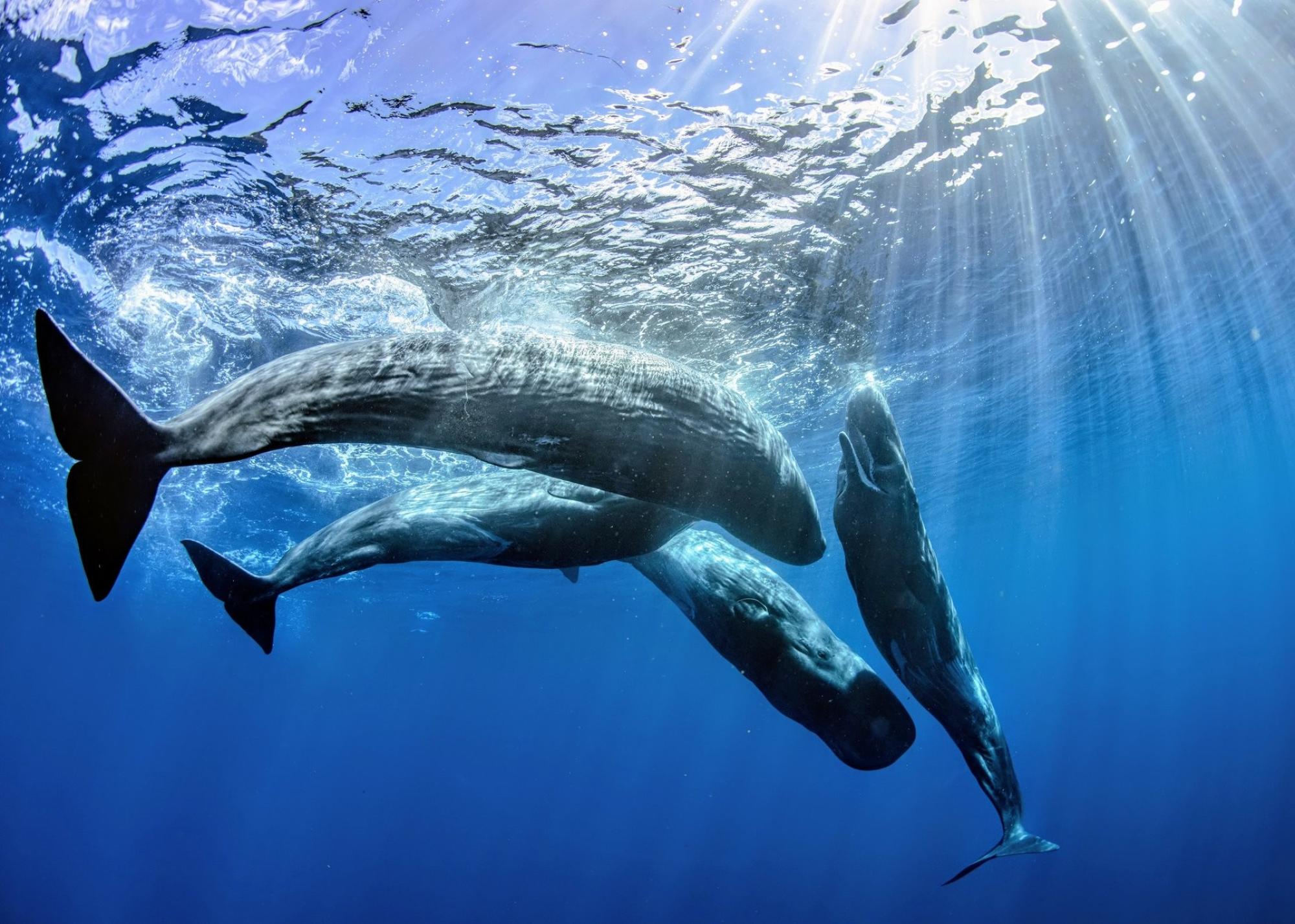Related Stories
Scientists document remarkable sperm whale 'phonetic alphabet'
Key Excerpts from Article on Website of NBC News

Posted: June 17th, 2024
https://www.nbcnews.com/science/science-news/scientists-docu...
The various species of whales inhabiting Earth’s oceans employ different types of vocalizations to communicate. Sperm whales, the largest of the toothed whales, communicate using bursts of clicking noises — called codas — sounding a bit like Morse code. A new analysis of years of vocalizations by sperm whales in the eastern Caribbean has found that their system of communication is more sophisticated than previously known, exhibiting a complex internal structure replete with a “phonetic alphabet.” The researchers identified similarities to ... human language. “The research shows that the expressivity of sperm whale calls is much larger than previously thought,” said Pratyusha Sharma ... lead author of the study published on Tuesday in the journal Nature Communications. “Why are they exchanging these codas? What information might they be sharing?” asked study co-author Shane Gero, Project CETI’s lead biologist. “I think it’s likely that they use codas to coordinate as a family, organize babysitting, foraging and defense,” Gero said. Variations in the number, rhythm and tempo of the clicks produced different types of codas, the researchers found. The whales, among other things, altered the duration of the codas and sometimes added an extra click at the end, like a suffix in human language. “All of these different codas that we see are actually built by combining a comparatively simple set of smaller pieces,” said study co-author Jacob Andreas.
Note: Explore more stories about amazing marine mammals.
Related Stories
Top Inspiring News Articles
Top Inspiring News Articles from Years Past
























































































